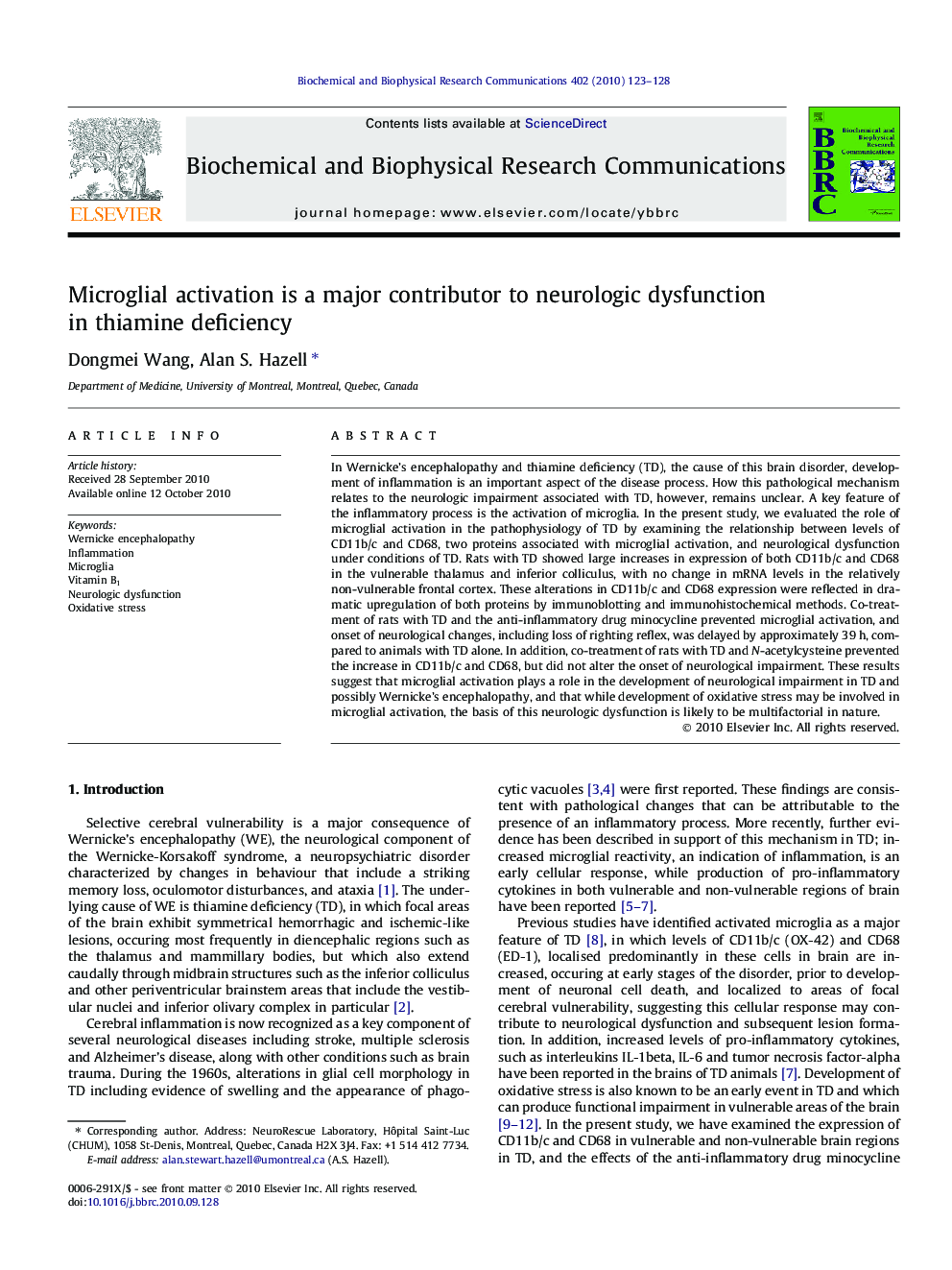| کد مقاله | کد نشریه | سال انتشار | مقاله انگلیسی | نسخه تمام متن |
|---|---|---|---|---|
| 1930999 | 1050536 | 2010 | 6 صفحه PDF | دانلود رایگان |

In Wernicke’s encephalopathy and thiamine deficiency (TD), the cause of this brain disorder, development of inflammation is an important aspect of the disease process. How this pathological mechanism relates to the neurologic impairment associated with TD, however, remains unclear. A key feature of the inflammatory process is the activation of microglia. In the present study, we evaluated the role of microglial activation in the pathophysiology of TD by examining the relationship between levels of CD11b/c and CD68, two proteins associated with microglial activation, and neurological dysfunction under conditions of TD. Rats with TD showed large increases in expression of both CD11b/c and CD68 in the vulnerable thalamus and inferior colliculus, with no change in mRNA levels in the relatively non-vulnerable frontal cortex. These alterations in CD11b/c and CD68 expression were reflected in dramatic upregulation of both proteins by immunoblotting and immunohistochemical methods. Co-treatment of rats with TD and the anti-inflammatory drug minocycline prevented microglial activation, and onset of neurological changes, including loss of righting reflex, was delayed by approximately 39 h, compared to animals with TD alone. In addition, co-treatment of rats with TD and N-acetylcysteine prevented the increase in CD11b/c and CD68, but did not alter the onset of neurological impairment. These results suggest that microglial activation plays a role in the development of neurological impairment in TD and possibly Wernicke’s encephalopathy, and that while development of oxidative stress may be involved in microglial activation, the basis of this neurologic dysfunction is likely to be multifactorial in nature.
Research highlights
► Thiamine deficiency (TD) in the rat results in focal increases in mRNA and protein expression of the microglial proteins CD11b/c and CD68.
► Increases in CD11b/c and CD68 are localized to the vulnerable thalamus and inferior colliculus but not the relatively non-vulnerable frontal cortex.
► Co-treatment of TD rats with minocycline blocked microglial activation and delayed onset of neurological changes.
► Co-treatment of TD rats with N-acetylcysteine prevented CD11b/c and CD68 upregulation but was ineffective in blocking neurological changes.
► Microglial activation is involved in neurologic impairment in TD.
► Oxidative stress may play a role in microglial activation but neurologic dysfunction in TD is likely multifactorial in nature.
Journal: Biochemical and Biophysical Research Communications - Volume 402, Issue 1, 5 November 2010, Pages 123–128